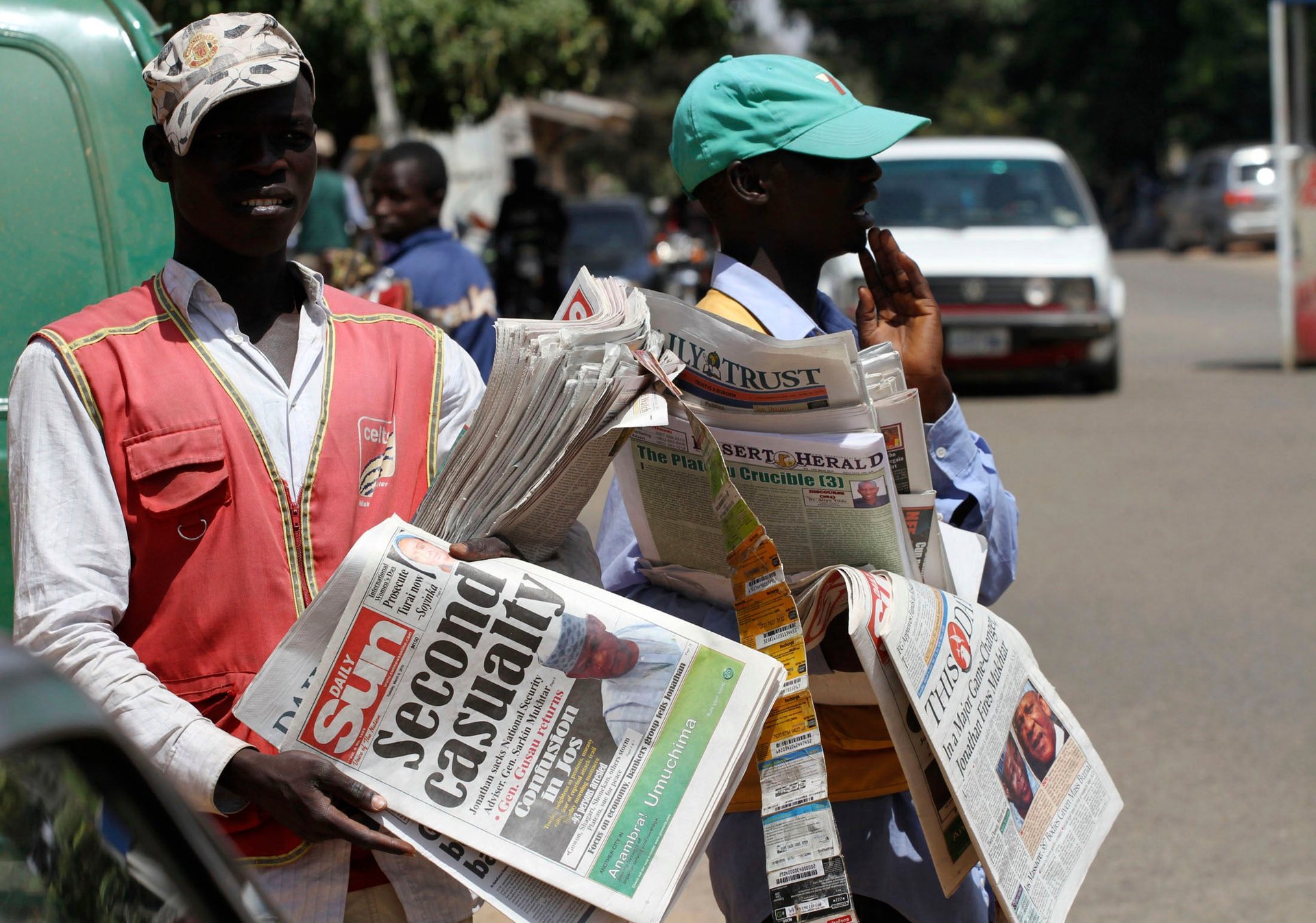Nigerian media houses are forming a coalition to combat fake news ahead of next year’s elections
With Nigeria’s general elections only three months away, local newsrooms are taking a stand against fake news.


With Nigeria’s general elections only three months away, local newsrooms are taking a stand against fake news.
As part of an initiative by First Draft, a British non-profit focused on tackling public misinformation, 16 Nigerian newsrooms are collaborating on CrossCheck Nigeria—a fact-checking project—to debunk fake news as political campaigns heat up ahead of general elections in February. In essence, CrossCheck is about “journalists working together in a transparent way in order to investigate online content,” Phoebe Arnold, a FirstDraft spokesperson told Quartz.
Journalists across the participating newsrooms will share research notes and reports to debunk misleading information and false claims on the internet. To “narrow the focus,” rather than investigating politicians’ claims at campaign rallies, CrossCheck will focus on debunking false news materials and rumours. Two stories—debunking a false Vladimir Putin quote and alleged photos of army attacks on terrorist group Boko Haram—have already been published by the coalition.
Given Nigeria’s historical religious and ethnic fault-lines which become even more vulnerable around election season, false stories and rumors designed to sway votes are likely to be more prominent. But false claims also have a tendency to stoke ethnic violence. In a recent example, communal violence in Plateau, a northern Nigerian state, was exacerbated by false claims on Facebook. Indeed, given rampant online misinformation, Nigeria’s army has resorted to using mass radio broadcasts to debunk false, inciting reports.
But beyond Facebook, WhatsApp poses a bigger fake news problem. While content on most social media platforms can be tracked using open source tools, WhatsApp’s end-to-end encryption makes it difficult to monitor news as it spreads on the platform. As a workaround, CrossCheck Nigeria will count on crowd-sourcing using a WhatsApp business channel to allow the public share questionable claims making the rounds on the platform.
Journalists will then fact-check the claims and send fact-checked reports back to the public, encouraging them to share among their contacts as well. It’s a tactic that’s been previously deployed in a similar project (also backed by First Draft) during the Brazil elections: at its peak, the WhatsApp channel received 2,000 messages daily during the country’s election, Arnold says.
Tackling misinformation on WhatsApp has posed a problem even Facebook, its parent company, has not been able to crack. And there’s recent evidence of how potent WhatsApp—the most popular messaging app in Africa—can be in Africa: the platform was at the forefront of a vicious fake news cycle during Kenya’s tense elections last year.
Sign up to the Quartz Africa Weekly Brief here for news and analysis on African business, tech and innovation in your inbox